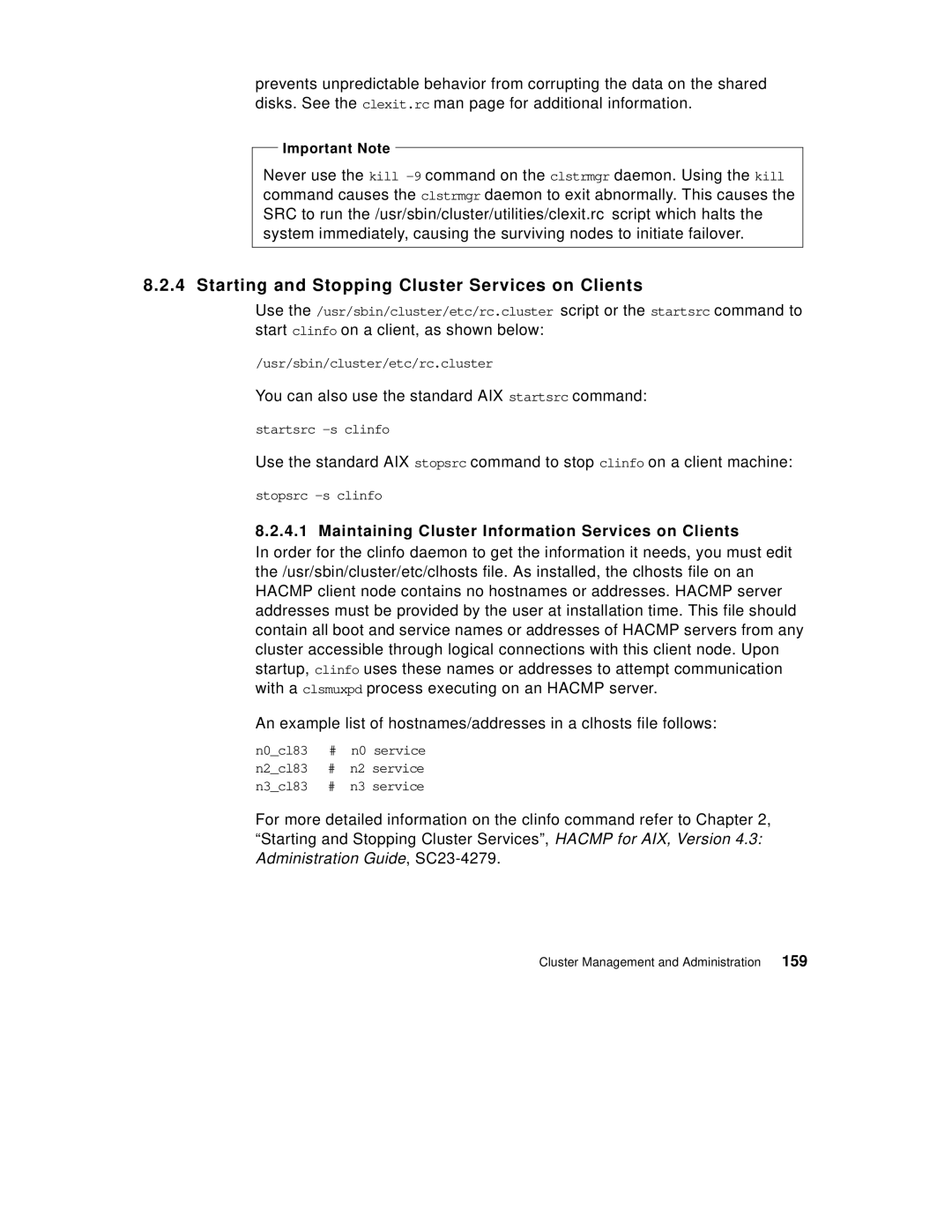
prevents unpredictable behavior from corrupting the data on the shared disks. See the clexit.rc man page for additional information.
Important Note
Never use the kill
8.2.4 Starting and Stopping Cluster Services on Clients
Use the /usr/sbin/cluster/etc/rc.cluster script or the startsrc command to
start clinfo on a client, as shown below:
/usr/sbin/cluster/etc/rc.cluster
You can also use the standard AIX startsrc command:
startsrc
Use the standard AIX stopsrc command to stop clinfo on a client machine:
stopsrc
8.2.4.1 Maintaining Cluster Information Services on Clients
In order for the clinfo daemon to get the information it needs, you must edit the /usr/sbin/cluster/etc/clhosts file. As installed, the clhosts file on an HACMP client node contains no hostnames or addresses. HACMP server addresses must be provided by the user at installation time. This file should contain all boot and service names or addresses of HACMP servers from any cluster accessible through logical connections with this client node. Upon startup, clinfo uses these names or addresses to attempt communication with a clsmuxpd process executing on an HACMP server.
An example list of hostnames/addresses in a clhosts file follows:
n0_cl83 # n0 service
n2_cl83 # n2 service
n3_cl83 # n3 service
For more detailed information on the clinfo command refer to Chapter 2, “Starting and Stopping Cluster Services”, HACMP for AIX, Version 4.3: Administration Guide,
Cluster Management and Administration 159
